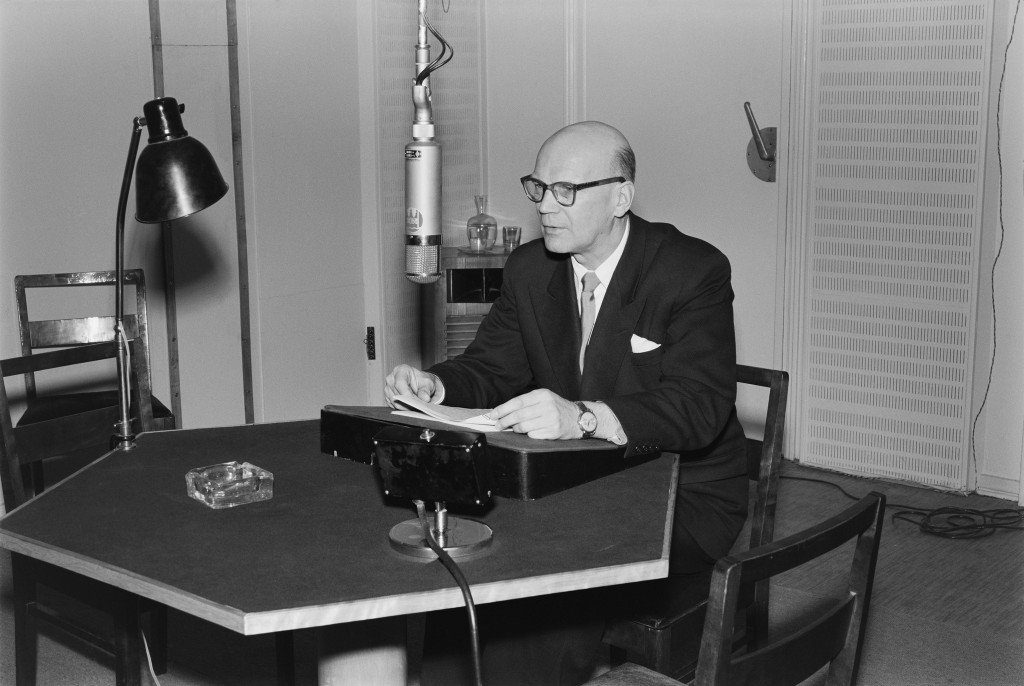 Finnish presidential candidate (later president) Urho Kekkonen speaking on the radio, 1956.
Finnish presidential candidate (later president) Urho Kekkonen speaking on the radio, 1956.
The social and cultural shift of 1960’s and 1970’s had an impact in the freedom of speech in Finland, according to a recent PhD dissertation by Tuula Pere is defended today 12th June in University of Helsinki, Finland. The dissertation is a legal-historical study on the impact the social and cultural shift had on the rules and limits in Finnish press, radio and television.
After the war years, the economic and demographic structures of the Finnish society changed. Taking the changes – rebuilding of the society, the baby-boom generation, increasing of material goods etc. – into account, the dissertation notes that the citizens had become interesting both as a voter and a consumer. Therefore the volume and technology of communication developed significantly, bringing about a new opinion climate, which in turn shifted the appropriate limits of the freedom of speech.
The analysis focuses primarily on the national level, but takes into account the international situation of the Cold War era, the political pressure coming from the Soviet Union, and the phenomenon of “Finlandisation” – all of which naturally had an impact on Finnish version of freedom of speech.
Read the dissertation here (in Finnish, abstract in English).